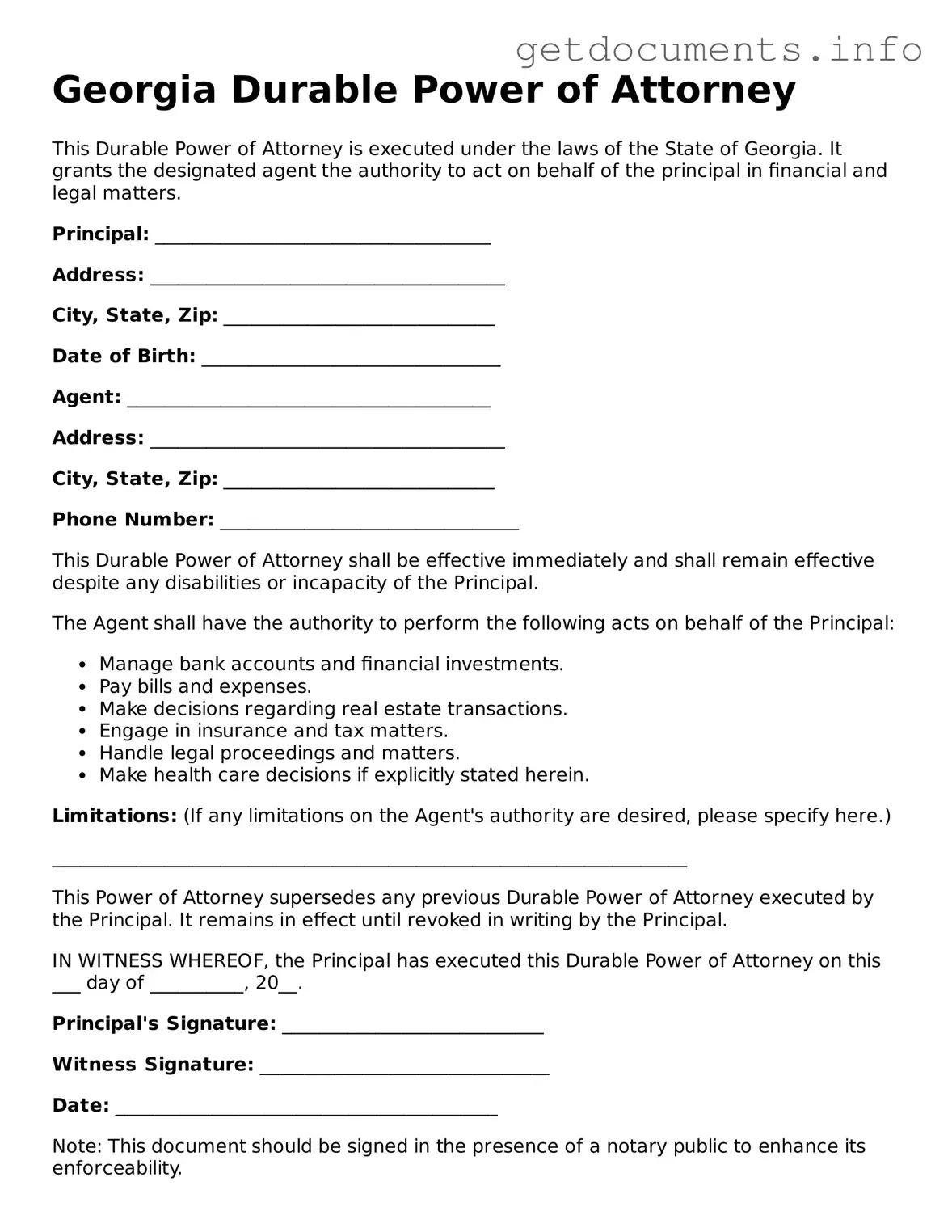Free Durable Power of Attorney Template for Georgia
A Georgia Durable Power of Attorney form is a legal document that allows an individual to appoint someone else to make decisions on their behalf, even if they become incapacitated. This form is essential for ensuring that your financial and medical affairs are managed according to your wishes when you cannot do so yourself. Ready to take control of your future? Fill out the form by clicking the button below.
Access Durable Power of Attorney Editor

Free Durable Power of Attorney Template for Georgia
Access Durable Power of Attorney Editor
Got places to be? Complete the form fast
Fill out Durable Power of Attorney online and avoid printing or scanning.
Access Durable Power of Attorney Editor
or
⇩ PDF File
